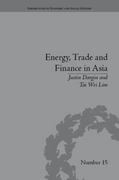Question
.Help me to solve the following questions. In December 2015, representatives from 195 nations gathered in Paris and signed an international agreement to address climate
.Help me to solve the following questions.
In December 2015, representatives from 195 nations gathered in Paris and signed an international agreement to address climate change, which many observers called a breakthrough for several reasons. First, the fact that a deal was struck at all was a major accomplishment, given the failure of previous climate change talks. Second, unlike previous climate change accords that focused exclusively on developed countries, this pact committed both developed and developing countries to reduce greenhouse gas emissions. However, the voluntary targets established by nations in the Paris climate deal fall considerably short of what many scientists deem necessary to achieve the stated goal of the negotiations: limiting the global temperature increase to 2 degrees Celsius. Furthermore, since the established targets are voluntary, they may be lowered or abandoned due to political resistance, short-term economic crises, or simply social fatigue or disinterest.
As philosophy professor Stephen Gardiner aptly explains, the challenge of climate change presents the world with several fundamental ethical dilemmas. It is simultaneously a profoundly global, intergenerational, and philosophical problem. First, from a global perspective, climate change presents the world with a collective action problem: all countries have a collective interest in controlling global carbon emissions. But each individual country also has incentives to over-consume (in this case, to emit as much carbon as necessary) in response to societal demands for economic growth and prosperity.
Second, as an intergenerational problem, the consequences of actions taken by the current generation will have the greatest impact on future generations yet to be born. Thus, the current generation must forego benefits today in order to protect against possibly catastrophic costs in the future. This tradeoff is particularly difficult for developing countries. They must somehow achieve economic growth in the present to break out of a persistent cycle of poverty, while limiting the amount of greenhouse gasses emitted into the atmosphere to protect future generations. The fact that prosperous, developed countries (such as the U.S. and those in Europe) arguably created the current climate problems during their previous industrial economic development in the 19th and 20th centuries complicates the tradeoffs between economic development and preventing further climate change.
Finally, the global and intergenerational nature of climate change points to the underlying philosophical dimensions of the problem. While it is intuitive that the current generation has some ethical responsibility to leave an inhabitable world to future generations, the extent of this obligation is less clear. The same goes for individual countries who have pledged to reduce carbon emissions to help protect environmental health, but then face real economic and social costs when executing those pledges. Developing nations faced with these costs may encounter further challenges as the impact of climate change will most likely fall disproportionally on the poor, thus also raising issues of fairness and inequality.
Discussion Questions:
5. Considering that the negative impacts of climate change will likely fall disproportionally on the poor, yet developing countries must often increase consumption and emissions to achieve greater economic growth, do you think developing nations should be exempt from actions to control climate change? Why or why not?
6. The climate change agreement approved in Paris is based on voluntary goals and pledges by participating countries. Would it be ethically permissible to impose carbon emission goals on countries and individuals and enforce them with penalties? Explain your reasoning.
7.Should individuals, organizations, cities and states stay activity involved in climate change prevention even though President Trump pulled out of the Paris agreement? Can one group or even one person make a difference?

Step by Step Solution
There are 3 Steps involved in it
Step: 1

Get Instant Access to Expert-Tailored Solutions
See step-by-step solutions with expert insights and AI powered tools for academic success
Step: 2

Step: 3

Ace Your Homework with AI
Get the answers you need in no time with our AI-driven, step-by-step assistance
Get Started


